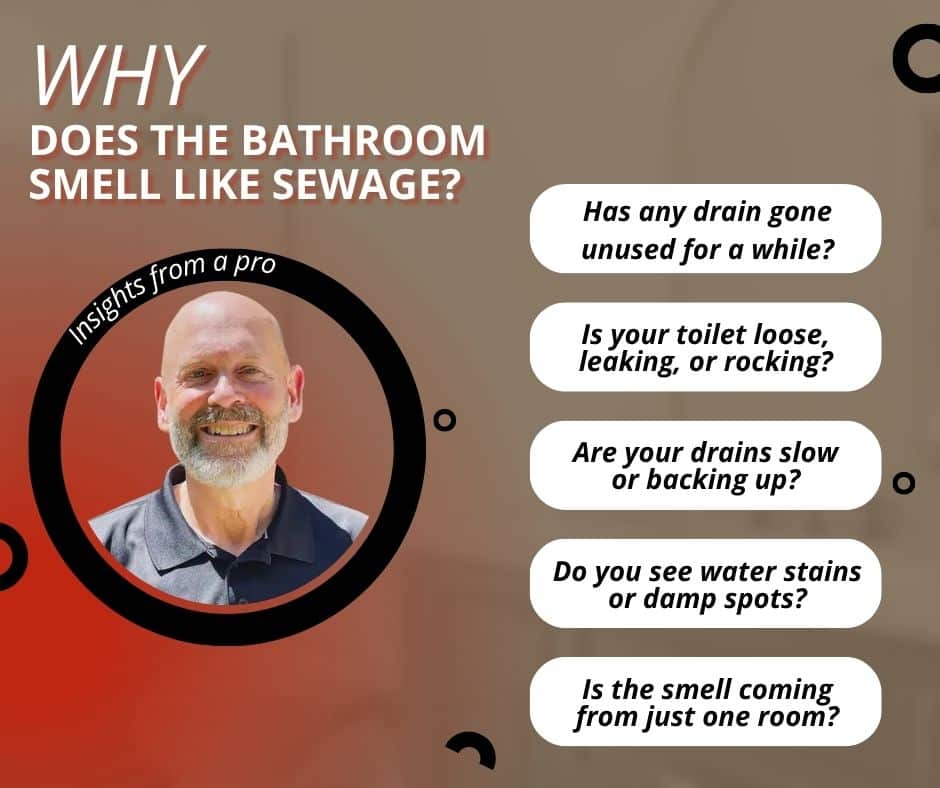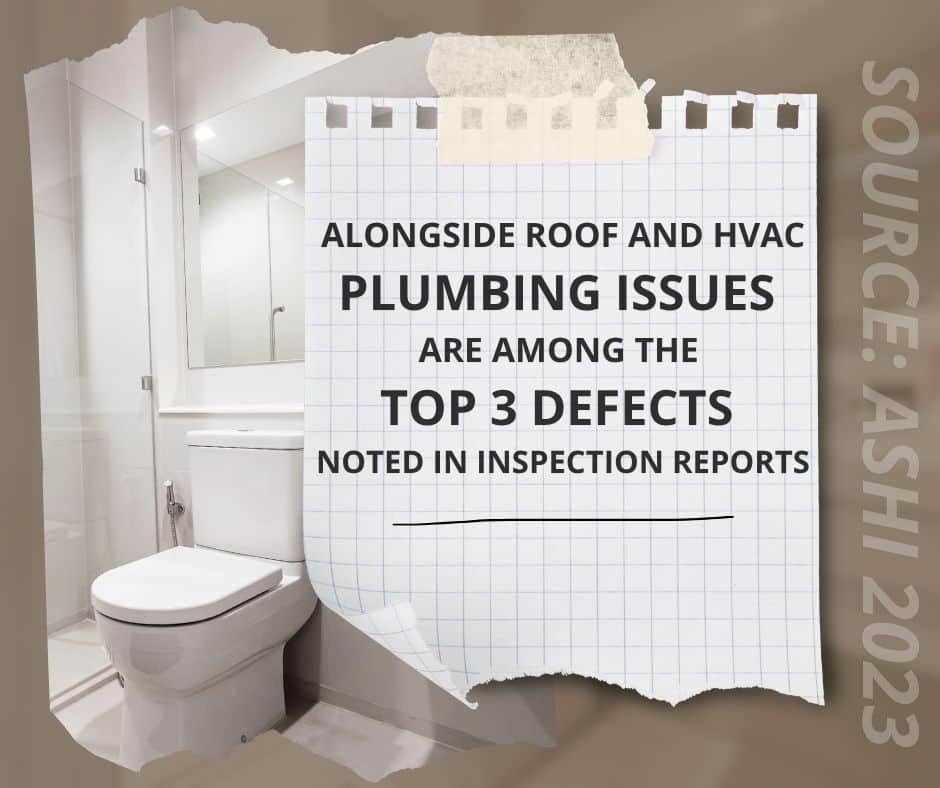There’s nothing worse than walking into a clean bathroom, only to get hit with a nasty sewage smell. Even if the room looks spotless, that odor can linger and leave you wondering what’s going on behind the scenes.
If your bathroom smells like sewage, there’s likely a plumbing issue, drainage problem, or hidden leak at play. Here’s how to figure out what’s causing the smell, what it means for your home, and when to get it checked out by a professional.
Common Causes of Sewage Smells in Bathrooms
Not every sewer smell means something is seriously wrong, but all of them deserve attention. These are the most likely reasons your bathroom smells like sewage:
1. Dry P-Trap
The P-trap is the curved pipe under your sink or shower drain. It’s designed to hold a small amount of water, which blocks sewer gases from rising up into your home. If the trap dries out (usually from disuse), those gases can leak back in.
How to check:
Run water down the drain for 30 seconds. If the smell fades afterward, the trap was likely the issue.

2. Broken or Loose Toilet Seal
The wax ring that seals your toilet to the drainpipe can wear out or shift over time. If the seal breaks, sewage gases can escape into the room.
What to look for:
A toilet that rocks slightly, smells worse after flushing, or shows signs of water damage at the base.
3. Clogged or Slow Drains
A clog in your sink, shower, or toilet can trap organic material that begins to rot, releasing unpleasant smells. If the clog is deep in the pipes, it may back up gases along with wastewater.
Warning signs:
Water draining slowly, gurgling sounds, or backups in other fixtures.
4. Cracked or Leaking Pipes
Cracks in drainpipes behind the wall or under the floor can release sewer gases where you can’t see them. These leaks are often accompanied by moisture damage, stains, or mold.
What to look for:
Unexplained dampness, ceiling stains, or persistent odors near walls or floors.
5. Sewer Line Problems
A blocked or broken sewer line can send odors through your entire home. While this is less common, it’s one of the more serious causes. Older homes or properties with large trees nearby are more at risk due to root intrusion or aging pipes.
Symptoms:
Multiple drains smelling bad at once, recurring backups, or strong odors in bathrooms and basements.
Does This Mean There’s a Health Risk?
Sewer gases contain methane and bacteria, so a consistent sewage smell in your bathroom or home is not something to ignore. Prolonged exposure, especially in small or poorly ventilated bathrooms, can cause:
- Headaches
- Dizziness
- Fatigue
- Nausea
- Eye or throat irritation
Most of the time, the gas levels are low and the risk is minimal. But if the smell is strong or constant, the conditions behind it may be affecting your air quality or water safety. It’s always better to investigate than to ignore it.
What to Do About the Smell
If the odor is mild and recent, you can try a few simple DIY steps:
- Flush all drains – Run water in sinks, tubs, and showers that don’t get used often
- Clean the drains – Use baking soda and vinegar or a mild drain cleaner to clear out build-up
- Check the toilet base – If it moves or leaks, you may need to reseat it with a new wax ring
- Ventilate the room – Open windows or use a fan to help disperse any lingering gases
If these steps don’t help, or the smell keeps coming back, it’s time to go deeper.

Related Bathroom Inspection Questions
Can a home inspection identify the cause of a sewer smell?
Yes. An experienced home inspector will check visible plumbing, water flow, ventilation and look for signs of leaks or drainage issues. If they spot red flags, they’ll recommend further evaluation from a licensed plumber.
Is this something I should fix before selling my home?
Absolutely. A strong odor during a showing can turn buyers away and may lead to questions about hidden damage. It’s best to resolve the issue ahead of time rather than risk losing a potential offer.
Could this smell be coming from the vent pipe?
It’s possible. If your roof vent pipe is clogged or damaged, sewer gases can’t escape properly and may get pushed back into the bathroom. These issues are harder to spot without a professional inspection.
When to Call a Professional
If the smell doesn’t go away after basic cleaning and maintenance, or if it seems to be getting worse, call in a professional. You may need:
- A plumber to inspect drainpipes, toilet seals, and the main sewer line
- A home inspector to assess signs of hidden leaks or moisture damage
- A mold expert if water intrusion has led to secondary issues
For buyers or sellers, a full home inspection is a smart step. It can confirm whether the smell is a small maintenance fix or something bigger that affects the property’s value and safety.
Final Thoughts
If you’re asking, “Why does my bathroom smell like sewage?”, don’t wait and hope it goes away. Even minor odors can signal problems with your plumbing, drains, or ventilation. Some fixes are simple, but others may point to issues behind the walls or beneath the floor.
Getting ahead of it protects your home, your health, and your investment, especially if you’re planning to sell soon. For a clear, thorough look at what’s going on, schedule a home inspection with a company that knows what to look for: Champia has your back.
